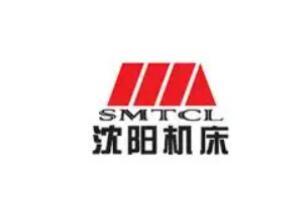Title: Unveiling Shenyang Machine Tool Company’s Covert Exports to North Korea and Russia
A recent investigation by the Institute for Science and International Security has brought to light compelling evidence implicating the Shenyang Machine Tool Company (SMT) in unauthorized sales of sophisticated machinery to North Korea and Russia. These transactions, which appear designed to circumvent international sanctions, have significant implications for global security dynamics amid an already strained geopolitical environment. This article explores the detailed findings of this report, assesses their impact on international stability, and discusses potential policy responses aimed at curbing such illicit trade.
Exposing Shenyang Machine Tool Company’s Hidden Exports to North Korea and Russia
Newly uncovered documents reveal that SMT has been involved in a series of covert operations supplying advanced equipment with military applications to both North Korea and Russia. The Institute’s research highlights how these transactions were systematically concealed through a complex network of shell companies intended to mask end-users. Key components transferred include:
- Precision engineering machinery: Essential for manufacturing critical military hardware parts.
- Dual-use technologies: Equipment capable of serving civilian industries but also adaptable for defense purposes.
- Joint ventures: Collaborations with Russian entities known for their defense sector affiliations.
Financial trails suggest possible connections between SMT’s activities and state-backed programs aimed at enhancing military capabilities in defiance of existing sanctions regimes. Such revelations raise urgent questions about the effectiveness of current export controls and highlight vulnerabilities exploited by companies operating within gray zones.
Global Security Concerns and the Urgency for Tightened Sanctions
The exposure of SMT’s clandestine dealings underscores an escalating threat that extends beyond regional borders, challenging decades-long efforts toward arms control. The consequences stemming from these illicit exports are multifaceted:
- Escalation in Military Posturing: Access to advanced technology may embolden aggressive strategies by sanctioned states.
- Deterioration of Non-Proliferation Frameworks: Undermining global treaties designed to restrict weapons development.
- Erosion of Economic Stability: Potential retaliatory measures could disrupt international trade flows.
To address these risks effectively, there is a pressing need for enhanced sanction mechanisms targeting not only primary offenders like SMT but also their financial intermediaries and associated entities. Recommended measures include:
- Sovereign Asset Freezes: Blocking access to funds held by implicated individuals or organizations worldwide.
- Broadening Export Controls: Expanding restrictions on dual-use goods that can be repurposed militarily.
- Tightening Transaction Surveillance: Deploying advanced analytics tools for real-time monitoring of suspicious trade activities.
| ACTION TYPE | SCOPE & DESCRIPTION | POTENTIAL IMPACT |
|---|---|---|
| Sovereign Asset Freezes | Deny access to financial resources linked with illicit exports or procurement networks. | Highly Effective – Directly impedes funding streams supporting prohibited activities. |
| Broad Export Controls | Add dual-use technologies under stricter licensing requirements or embargoes where applicable. | Moderate Effectiveness – Limits availability but requires robust enforcement mechanisms. |
| Tightened Transaction Surveillance | Create integrated intelligence-sharing platforms among customs agencies globally; utilize AI-driven anomaly detection systems. . | < td > Variable Effectiveness – Dependent on inter-agency cooperation levels & technological adoption rates .















China Condemns Trump Administration’s Ban on Harvard’s Foreign Students